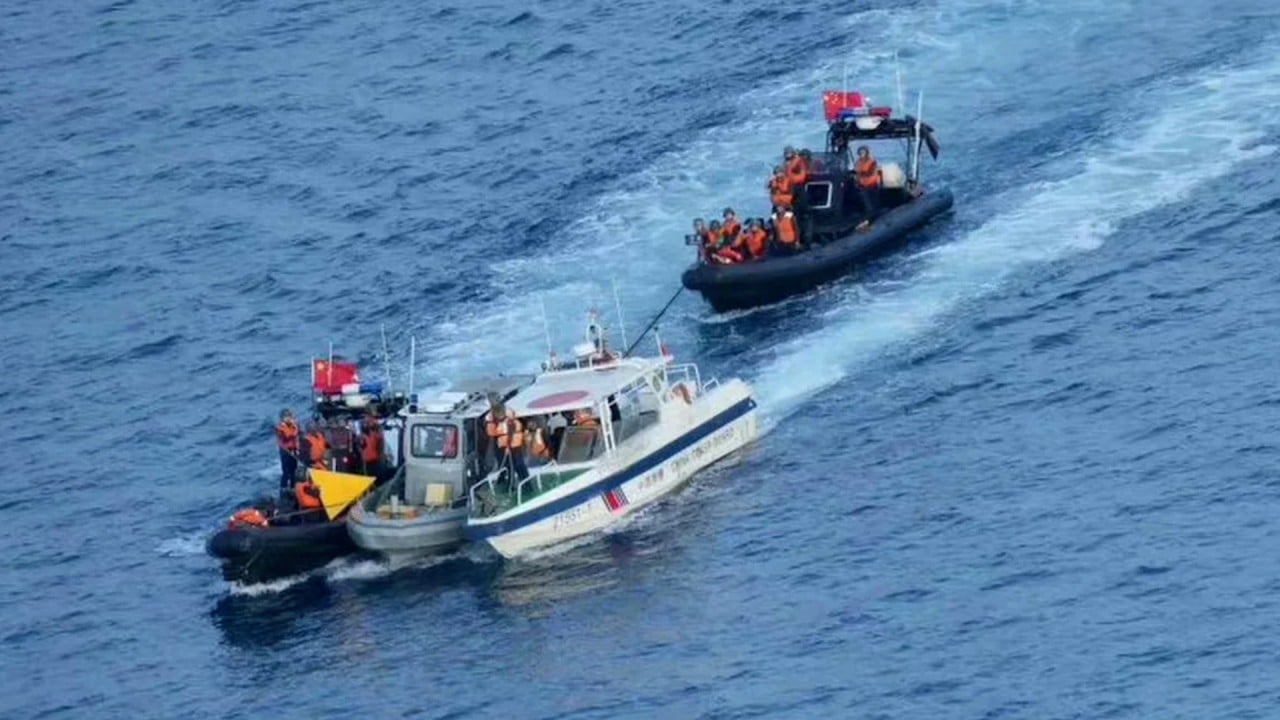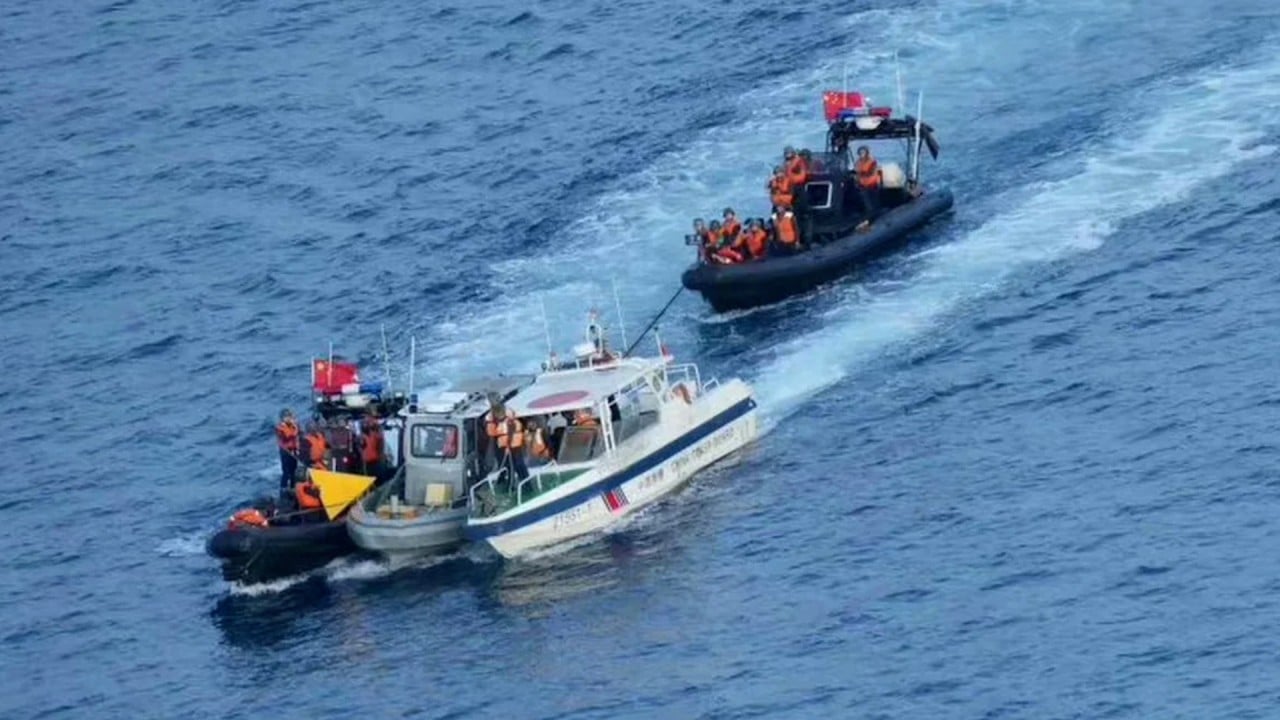Escalating conflict between the Philippines and China amid Manila’s increasingly hardened stance in defending its maritime territorial claims have sparked concerns among Filipinos, but some have mixed views on their leaders’ responses.
A June 17 clash between the Philippine navy and Chinese coastguard, in which one Filipino crewman lost his thumb, marked a pivotal point in already strained ties, according to observers, who also say Beijing’s actions in the disputed waters have grown more aggressive as it employs the breadth of “grey-zone tactics” that fall just short of crossing the threshold for armed conflict.
Filipinos who spoke to This Week in Asia seemed to agree with this assessment. China’s continuous build-up of its military capabilities and its increasingly assertive stance in the West Philippine Sea – Manila’s term for the parts of the South China Sea it claims – point to a worsening scenario, according to Ariane Tancioco, an independent sales and marketing consultant.
“China’s continuous military build-up and aggressive manoeuvres in the West Philippine Sea increase tensions and make diplomatic resolutions more difficult. The Philippines needs to stand firm and seek international support to counter these actions,” he said.
Tancioco said the clash between the Chinese coastguard and Philippine sailors was infuriating, while also expressing hopelessness about the Philippine military’s capabilities.
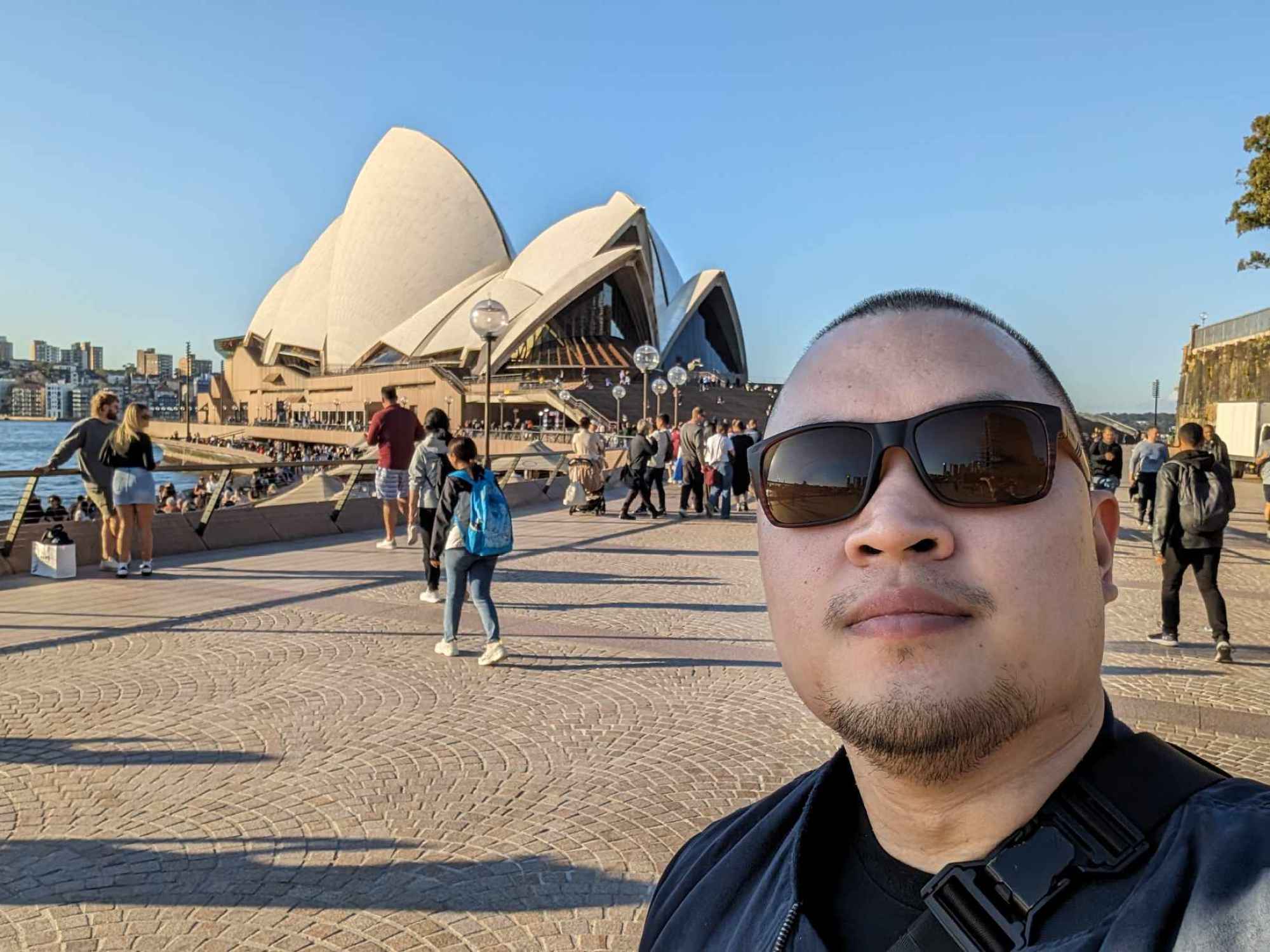
The skirmish could set a precedent and eventually lead to the death of a Filipino that would be considered an act of war, said Anton Hipolito, a software engineer.
“This will then invoke the mutual defence treaty where the United States would have to step in this conflict and in turn would lead to an actual armed conflict,” he said.
Edgie Ruiz, an executive vice-president of a company that courts investments from Chinese state-owned companies for Philippine infrastructure projects, blamed local media for blowing scenarios such as the June 17 clash out of proportion.
“[Local media] tends to sensationalise things. I met a Taiwanese friend recently and asked him about the tensions there … he said things were normal. When it comes to Filipino media, they always want to appeal to readers’ emotions,” he said.
Yet some Filipinos say the situation remains unchanged despite the increased domestic news coverage.
“I think it’s mostly keeping with the status quo, with more coverage,” said Keisha Constantino, who teaches at a state university and said she didn’t think the issue was really worsening.
“We are still doing business with China,” Ruiz said, adding that he believed the maritime dispute in the South China Sea “was a lost cause”.
An April survey by polling firm WRNumero found that seven in 10 Filipinos, or 66 per cent, believed that tensions in the West Philippine Sea were worsening. Twelve per cent said matters were not getting worse, while 21 per cent were unsure.
Hipolito expressed concern about the increasing incidents involving civilian and military personnel at sea, and the growing presence of Chinese militia vessels in disputed waters, as signs that tensions were worsening.
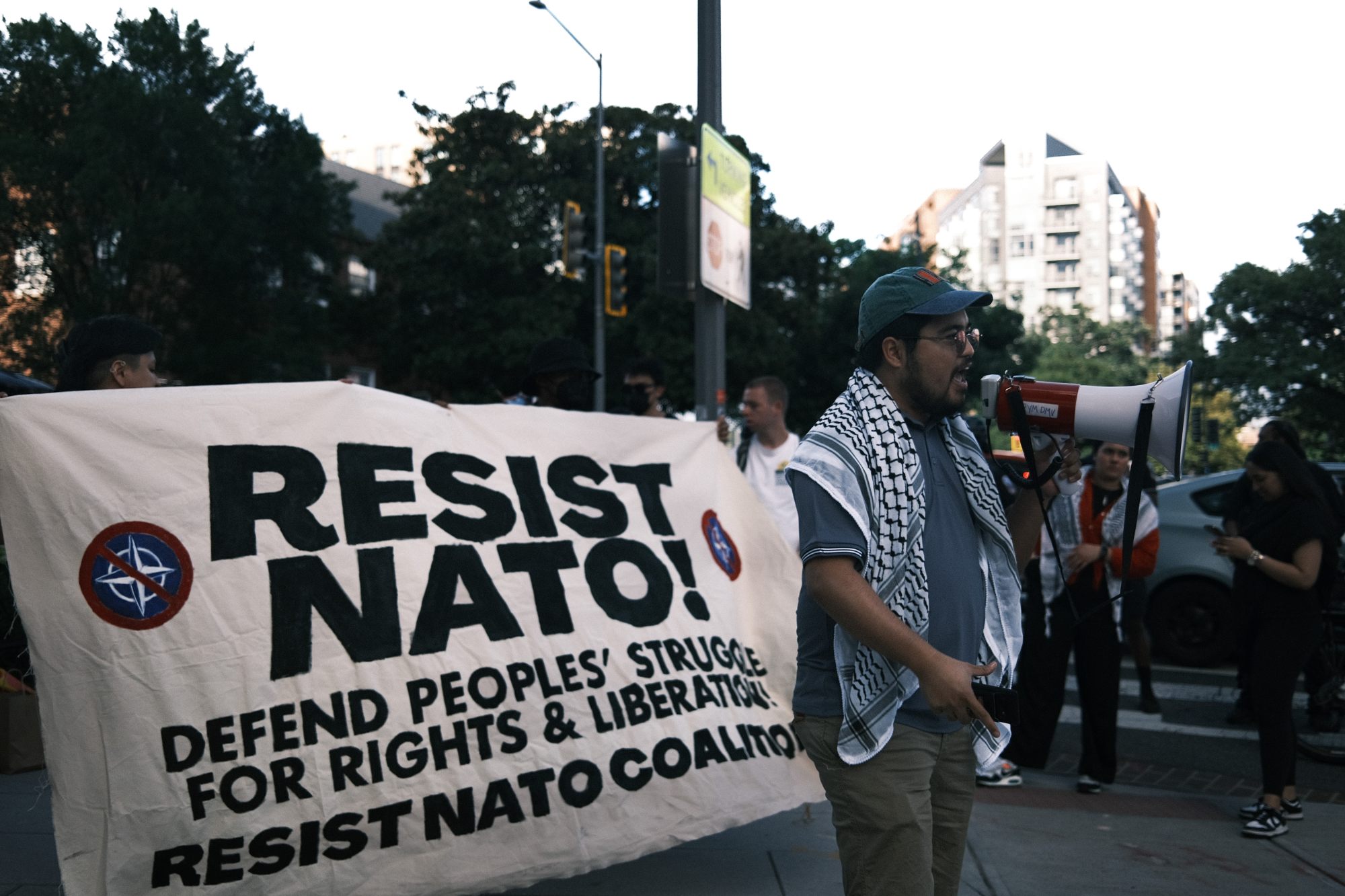
But Jhong dela Cruz, a nurse in the US who is involved with progressive groups such as Bayan USA and Migrante USA, argued that everything could still be resolved with proper diplomacy.
Tancioco said he found the rising tensions concerning, believing that they threatened regional stability and the livelihoods of Filipino fishermen.
“China’s actions undermine international maritime law, and their unchecked aggression could lead to broader conflicts that might involve other nations,” he said.
Filipinos’ opinions differed on how Philippine leaders and authorities were handling the maritime dispute.
Hipolito supported the Philippine Coast Guard’s continuous transparency with its reports of Chinese activity in the West Philippine Sea, and routine embedding of journalists on resupply missions to “show the world who the bad guys are”.
“We are also practising great restraint not to make the first act of war and being always on the defensive side. I think China is just waiting for us to make the mistake of attacking aggressively first so they can use this as an excuse to escalate further conflict,” he said.
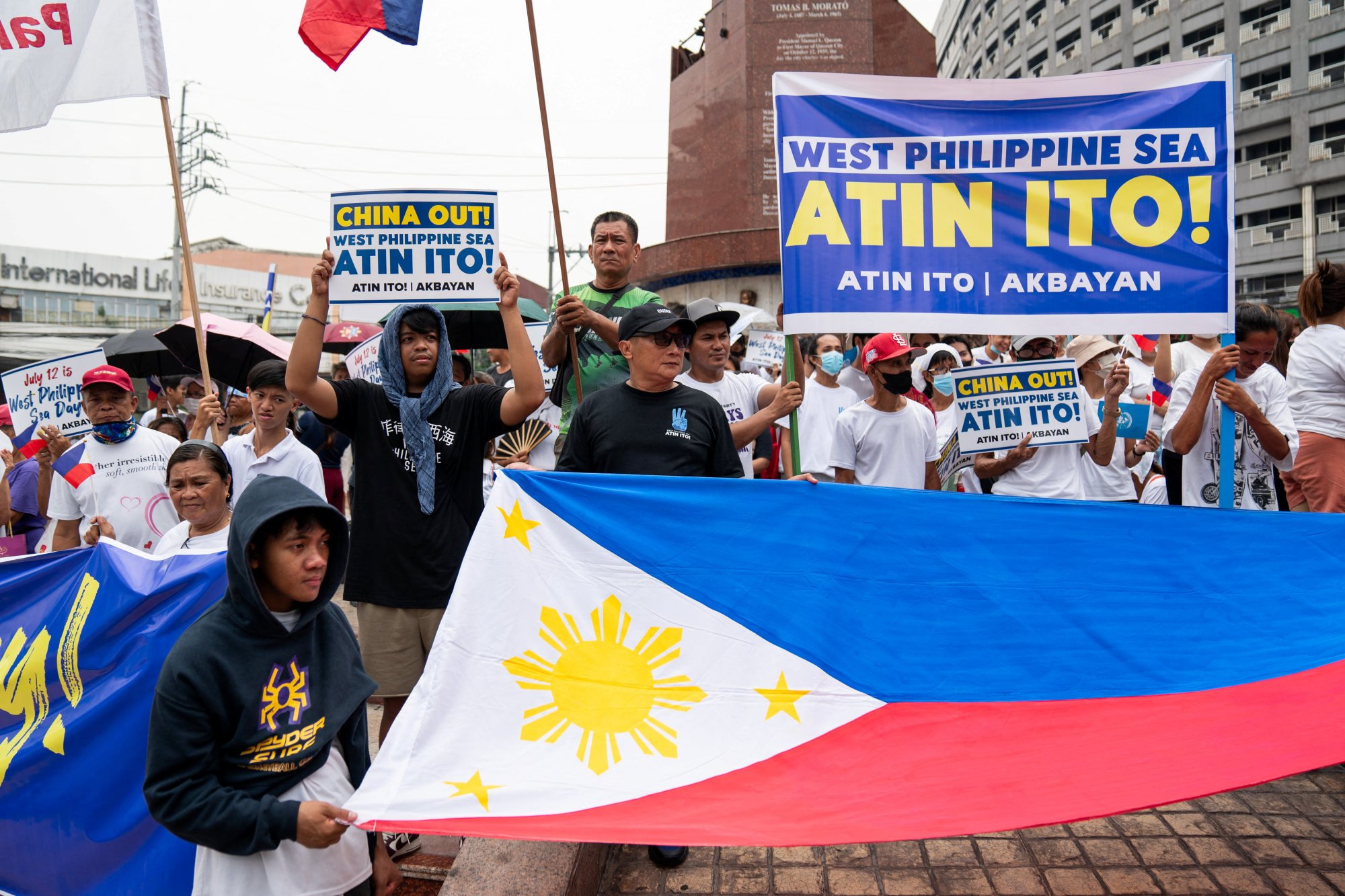
Tancioco urged Philippine leaders to take “stronger, more decisive actions”, such as prioritising strengthening alliances and defence capabilities.
Dela Cruz criticised the country’s leaders for being “very inconsistent and two-faced”.
“[President Ferdinand] Marcos Jnr himself claimed to seek a peaceful resolution and to avoid use of force with China, but then merely weeks later Senator Imee Marcos sought to provoke panic by claiming that 25 sites are under imminent attack, betraying the insincerity of their efforts to seek a diplomatic solution,” he said.
Many expressed concern about the fisherfolk who are at the receiving end of intimidation tactics by Chinese vessels at sea.
“I worry for the fisherfolk who are deprived of their right to livelihood, as well as our national interest and assertion over our territory and the resources the West Philippine Sea islands maintain,” dela Cruz said.
The ramming of Filipino fishing boats and harassment of Filipino fishermen were distressing and “highlight China’s disregard for human life and sovereignty”, Tancioco said.
Opinions on whether a direct war with China was imminent were also mixed.
“Tensions are surely rising in the West Philippine Sea, but I do not believe war is imminent,” dela Cruz said, noting that the US, the Philippines’ treaty ally, “would not be in favour of all-out war” given its own proxy wars in the Russia-Ukraine and Israel-Gaza conflicts.
Dela Cruz added that the Philippines needed to introduce “sweeping political and constitutional changes” for the country to independently produce its own war equipment and resist offers of foreign aid.
Hipolito said he believed the Philippines and China were on the verge of a direct conflict soon, but “I would like to be proven wrong about this”.
Constantino noted that “China isn’t a country that is an aggressor. They use scare tactics for sure, but it’s not likely for them to actually strike”.
Ruiz agreed it was unlikely for China to engage the Philippines in a war “since they are afraid of the US military might”.
While a direct war with China was not inevitable, Tancioco said tensions could escalate into more serious conflicts if not managed properly.
“Diplomatic efforts and strong international alliances are key to preventing such a scenario,” he said.


